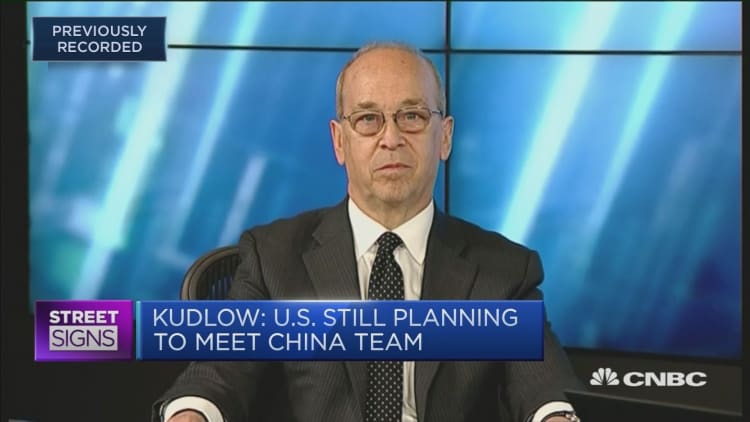Ray Dalio, founder of the world's largest hedge fund, Bridgewater Associates, urged investors to have bets on "both horses in the race" amid rising trade tensions between the U.S. and China.
In a video posted online Tuesday, Dalio argued that investors still have a historic opportunity to buy into China as it opens up its markets to foreign investments.
The trade war between Washington and Beijing has intensified over the past week after President Donald Trump announced 10% tariffs on a further $300 billion worth of Chinese goods. The tit-for-tat has culminated in China's yuan weakening beyond the psychological level of 7 per dollar on Monday, dragging currency markets into the fray. The U.S. objects to the lower yuan as it makes Chinese exports cheaper on international markets, offering Chinese products a price advantage.
Markets reacted by embarking on a substantial sell-off, leading Wall Street to its worst day of the year on Monday, with the Dow plunging 767 points. This compounded already significant losses triggered by Trump's tariff announcement last Thursday.
Dalio suggested that tension between the two was reminiscent of periods throughout history in which a world power at the head of a global order is challenged by a rising power, and likened China's current trajectory to the rise of the Dutch, British and more recently American, periods of global economic dominance.
"Would you have not wanted to invest with the Dutch in the Dutch empire? Would you have not wanted to invest in the industrial revolution and the British empire? Would you not want to invest in the United States and the United States empire? I think it's comparable," Dalio said.

In the current context of the trade war, Dalio asserted his belief in diversification, suggesting that despite the perceived risk of investing in China, going where growth can be found is the right thing to do.
"I believe China is a competitor of the United States or Chinese businesses are competitors of American businesses or other business around the world," he said, "and that therefore you want to be, if you're diversified, having bets on both horses in the race."
Dalio also highlighted that as markets ebb and flow in accordance with short-term developments, investors who wait for everything to work itself out would pay a "higher price" than those who do not, unless war breaks out.
"I don't think we're going to go to classic war — I do think there is going to be a restructuring of the world order in terms of changes in supply chains, changes in who is making what technologies, important changes in some of those things," Dalio said.
"I don't think that is going to mean that there won't be the evolution of China, the evolution of the United States," he added.
With China increasingly opening its markets to foreign investors, Dalio cautioned that "it is better to be early than it is to be late."
He also dismissed the notion that China is any more risky than the U.S., Europe or emerging markets since each has its own sources of risk. For instance, monetary policy "running out of gas" and political fragmentation, along with a lack of participation in the technological revolution, render Europe a risky region for investors. Meanwhile, the U.S. wealth gap and political polarization ahead of next year's elections carry their own dangers.

